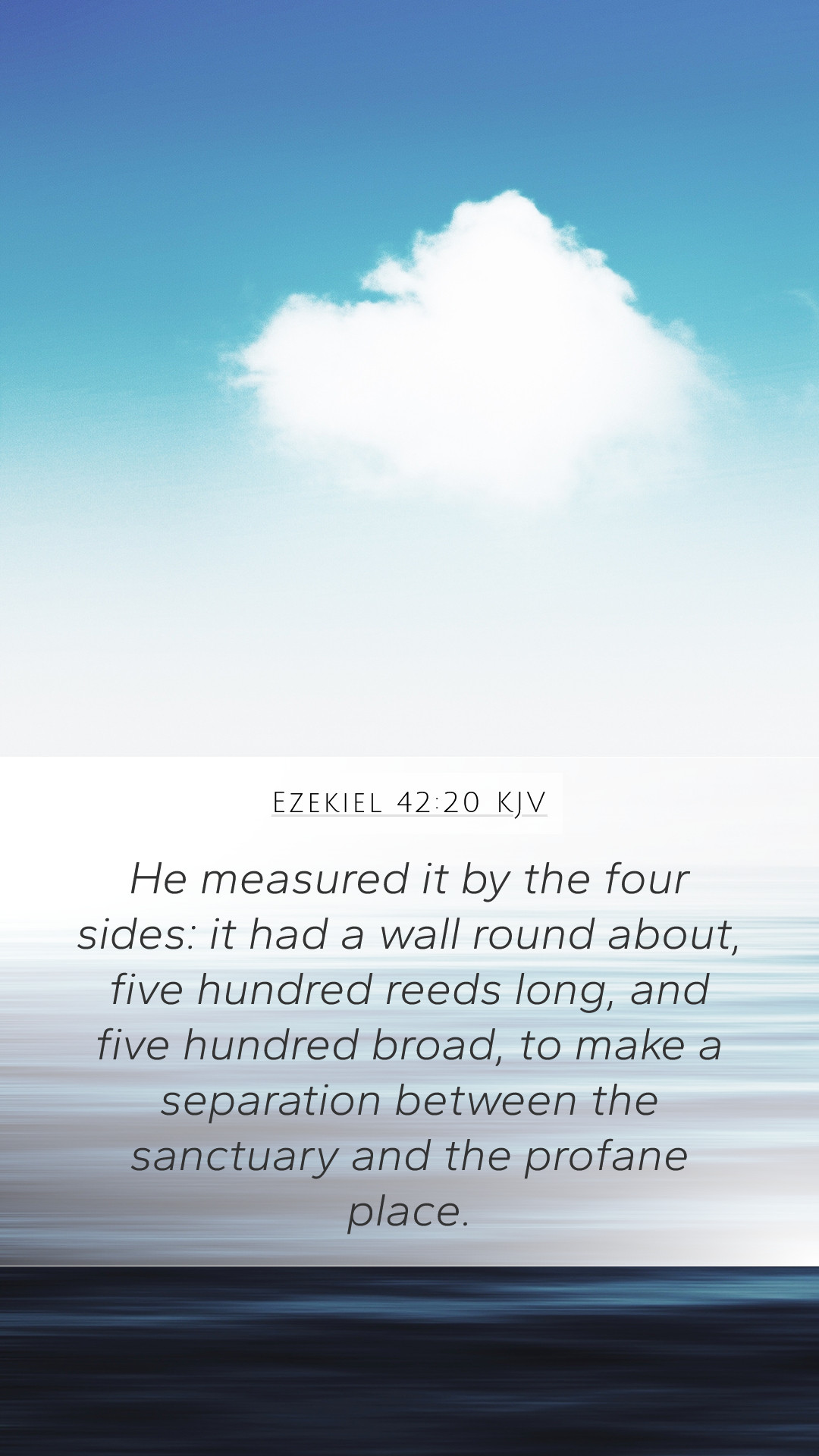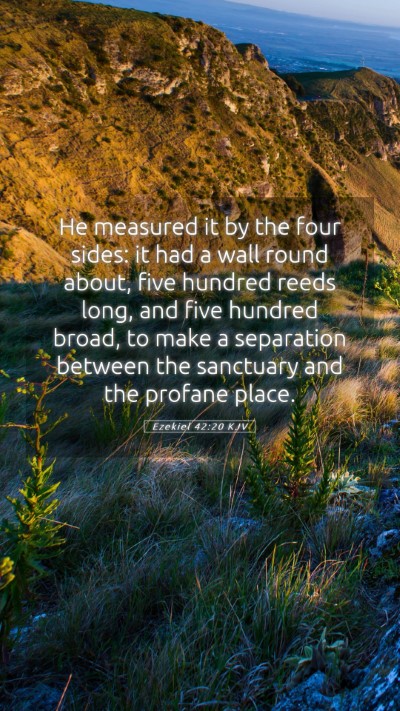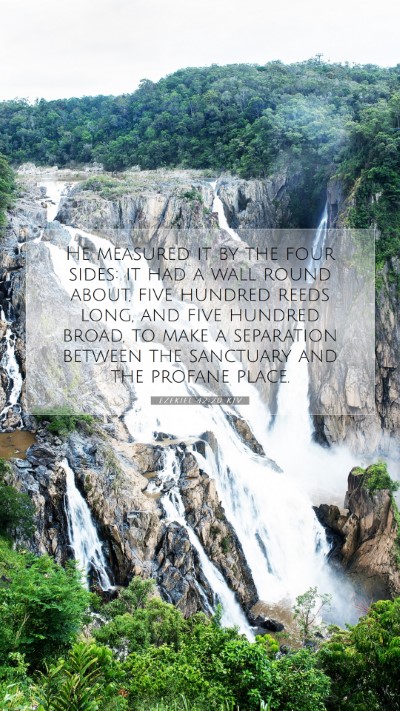Bible Verse Meaning and Interpretation of Ezekiel 42:20
Ezekiel 42:20 states: “He measured it on the four sides: it had a wall round about, five hundred reeds long and five hundred broad, to make a separation between the sanctuary and the profane place.” This verse is significant in the context of biblical architecture and symbolic boundaries.
Overview of Ezekiel's Vision
The book of Ezekiel captures profound visions granted to the prophet during a time of exile for the Israelites. This specific verse occurs within a series of detailed descriptions about the temple and the Holy land. Here, the measurements signify not only physical dimensions but also serve a spiritual purpose.
Commentary Insights
Based on public domain commentaries by Matthew Henry, Albert Barnes, and Adam Clarke, we can derive several insights:
- Matthew Henry: Henry emphasizes the importance of the precise measurements of the temple and how they reflect God's order. The separation created by walls signifies the distinction between holiness (the sanctuary) and commonality (the profane place). This exemplary boundary encourages reverence towards sacred spaces.
- Albert Barnes: Barnes highlights the aspect of divine providence in these measurements. The exact sizes—five hundred reeds—symbolize God's perfect plan and serve to reassure believers that God governs all creation, emphasizing the importance of maintaining distinct holy spaces.
- Adam Clarke: Clarke’s commentary focuses on the practical implications of the wall’s measurements. He suggests that the separation was meant to protect both the sanctuary and the people from the negative influences of the profane place, reinforcing the theme of holiness in the believer's life.
Thematic Elements and Symbolism
The thematic elements of Ezekiel 42:20 center on:
- Separation: The verse demonstrates the need for boundaries in spiritual life, stressing the importance of separating the sacred from the secular.
- Divine Order: The meticulous measurements signify God's divine order and intentional creation. Each aspect of the temple serves a greater purpose in representing God’s presence among His people.
- Holiness and Reverence: The delineation between the sanctuary and the profane underlines the call for holiness and reverence in approaching God. It encourages believers to maintain a lifestyle that reflects God's standards.
Application to Daily Life
Understanding Ezekiel 42:20 can guide individuals in their spiritual journey in several ways:
- Personal Holiness: Believers are called to uphold holiness in their lives, ensuring that they cultivate a space for God amidst worldly distractions.
- Respect for Sacredness: This verse illustrates the importance of treating sacred aspects of faith with the utmost respect and care, whether in worship spaces or personal devotion.
- Encouragement in Separation: It provides comfort in the call to stand apart from secular values and norms, reminding individuals of their unique identity in Christ.
Cross References
This verse relates to several other passages that reinforce its themes:
- Exodus 26:33: Discussing the separation of the Holy Place from the Most Holy Place in the tabernacle.
- Hebrews 10:19-22: The access to God's presence made possible through Christ, affirming the notion of holy spaces.
- Revelation 21:27: Describing the New Jerusalem where nothing unclean enters, echoing themes of holiness.
Conclusion
In conclusion, Ezekiel 42:20 serves as a crucial element of biblical exegesis, emphasizing the significance of the division between holy and profane. Understanding this verse through various commentaries deepens our Bible study insights, providing a framework for how to apply such teachings in our daily lives. The exploration of Scripture analysis fosters greater comprehension of not just this passage, but the overarching context of holiness that permeates the Bible.
Engagement with Bible study groups or online Bible study resources can further enhance understanding and application of such scriptural truths, enabling believers to grasp the profound meanings behind various Bible verses, including Ezekiel 42:20.


